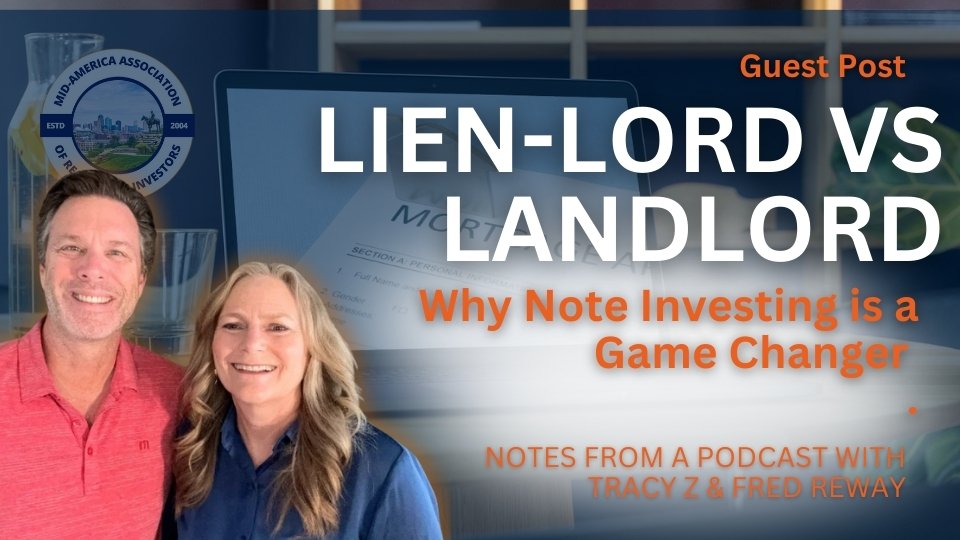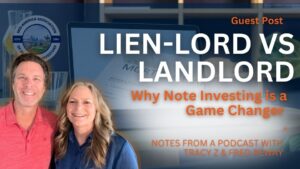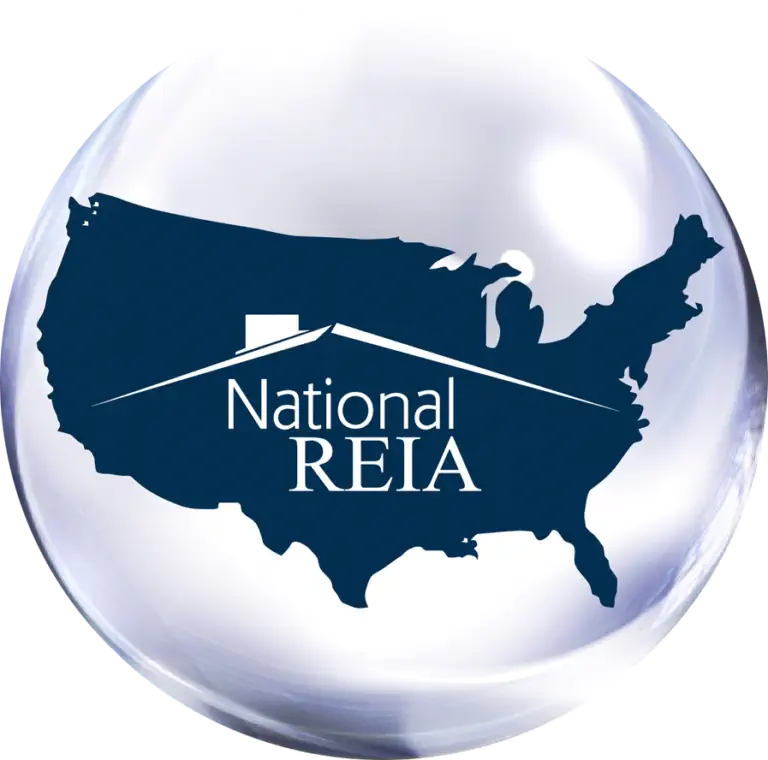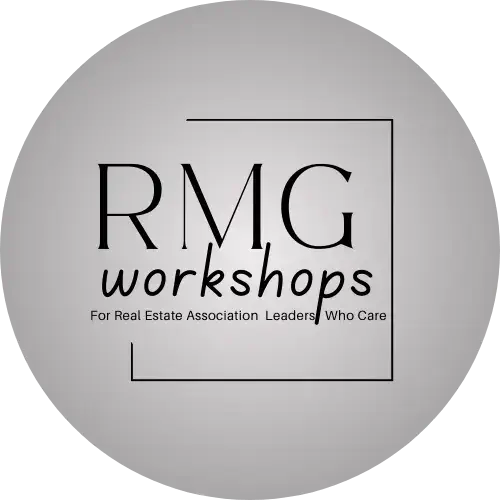
Why Note Investing is a Game Changer
If you’ve spent any time in the real estate investing world, you’ve likely been told that owning rental properties is the best way to build long-term wealth. But what if there was another way—one that offers steady returns without the headaches of property management, tenant issues, or maintenance calls at midnight? Enter note investing.
I just watched an eye-opening podcast featuring Tracy Z and Fred Rewey, two of the most respected experts in the note investing space. They shared how they went from traditional real estate investing to becoming “lien-lords”—a term that perfectly describes the power of owning real estate-backed notes instead of managing physical properties. And the best part? They’re coming to MAREI on March 22nd to teach an exclusive master class on how to get started.
What is Note Investing?
Simply put, note investing is when an investor buys a mortgage note—essentially becoming the lender. Instead of owning the property, you own the right to collect payments from the borrower. Tracy and Fred specialize in performing seller-financed first-position notes, which means they focus on loans that homeowners are already paying on, rather than the riskier strategy of buying defaulted loans.
While many investors chase distressed properties or try to acquire nonperforming loans at a discount, Tracy and Fred prefer cash-flowing, performing notes. They explained how they buy these notes from sellers who originally financed the sale of their own property and now want to cash out. By purchasing these notes at a discount, investors can earn a strong return while enjoying truly passive income.
Why Become a Lien-Lord Instead of a Landlord?
Traditional rental properties come with a long list of responsibilities—repairs, property taxes, dealing with vacancies, and handling difficult tenants. Tracy and Fred discovered early on that while real estate ownership builds wealth, being the lender offers many of the same financial benefits with fewer headaches.
Here are a few key advantages of note investing:
No tenants, toilets, or turnover: You’re not managing a property—you’re collecting payments.
Consistent passive income: If structured correctly, notes generate reliable monthly cash flow.
Built-in security: The property serves as collateral, protecting your investment.
Flexibility in structuring deals: You can buy a whole note or just a portion (a partial), reducing your capital exposure.
A $27 Billion Market Hiding in Plain Sight
One of the biggest surprises from the podcast was learning that between 4% and 6% of all real estate transactions involve seller-financed notes—a market worth over $27 billion annually. This means there are thousands of property sellers across the country who finance their own sales and later look to sell those notes to investors like us.
But how do you find these notes? Tracy and Fred outlined several strategies, including:
Public records searches: Since mortgage and deed transactions are recorded at the county level, this data is readily available.
Direct mail marketing: Many note holders are unaware they can sell their note, making direct outreach a powerful tool.
Networking with real estate professionals: Agents, attorneys, and title companies often know sellers looking to cash out of a note.
Self-directed IRA events and investor meetups: Many private lenders use tax-advantaged retirement accounts to invest in notes.
What Does a Typical Note Deal Look Like?
During the podcast, Fred broke down a simple deal structure:
A property sells for $120,000 with a $20,000 down payment.
The seller finances the remaining $100,000 at 10% interest for 30 years.
The borrower makes a fixed monthly payment of $877.57.
An investor buys this note at a slight discount (say $85,000), increasing their return.
The investor now owns the note, receiving the monthly payments while benefiting from the security of the underlying real estate. If the borrower stops paying, the note holder can foreclose and take back the property, just like a bank would.
Learn More at MAREI’s Master Class on March 22nd
If you’re intrigued by the idea of note investing but unsure where to start, you’re in luck. Tracy Z and Fred Rewey are coming to MAREI on March 22nd to teach a deep-dive master class on how to transition from landlord to lien-lord.
This exclusive event will cover:
The fundamentals of note investing
How to find and acquire performing seller-financed notes
The due diligence process to minimize risk
Creative strategies like partials and seller carrybacks
Plus it includes a Home Study Course that Tracy and Fred sell for $397 on evaluating a note.
If you’ve ever wished for a way to build wealth in real estate without the challenges of property management, note investing could be the answer. Tracy and Fred’s expertise in this field is unmatched, and I can’t wait to learn from them firsthand at the upcoming MAREI master class.
Seats are limited, so if you want to discover how to make real estate work for you without the hassle, register now for the March 22nd event at MAREI!
Article written by Kim Tucker with a little help from Chat GPT after watching the podcast.

Fred Rewey & Tracy Z
Tracy Z and Fred Rewey are seasoned note investors and educators with over 30 years of experience in the industry. They specialize in performing seller-financed notes, helping investors build wealth through passive income strategies.



